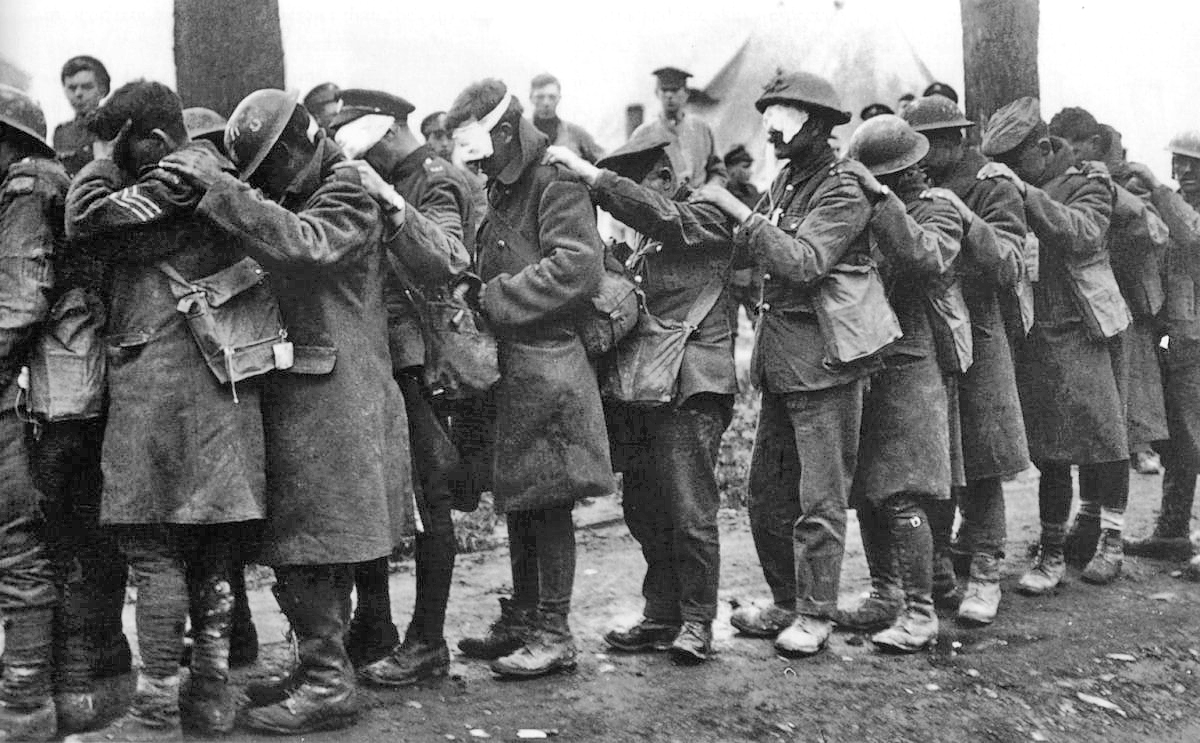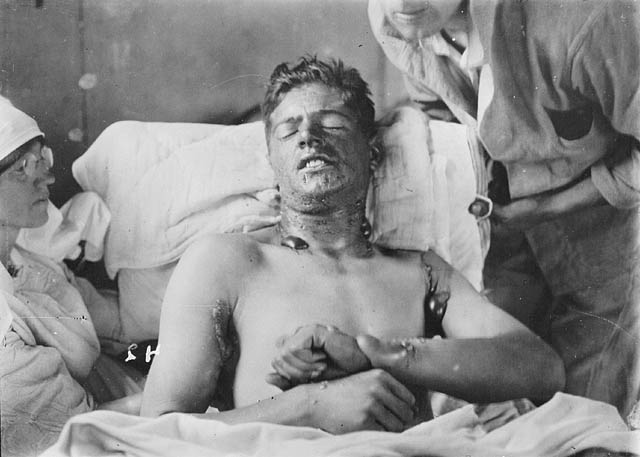Title: World War I
Date: 1914-1918
Nationality: Continental
Europe, United States
Creator: Man
Medium: Death
Title: Dulce Et Decorum
Est
Date: 1920
Nationality: United
Kingdom
Creator: Wilfred Owen
Medium: Print
British 55th Division gas casualties 10 April 1918
A Canadian soldier with mustard gas burns, ca. 1917–1918.
Dulce Et Decorum Est
Bent double, like old beggars
under sacks,
Knock-kneed, coughing like hags,
we cursed through sludge,
Till on the haunting flares we
turned our backs
And towards our distant rest
began to trudge.
Men marched asleep. Many had
lost their boots
But limped on, blood-shod. All
went lame; all blind;
Drunk with fatigue; deaf even to
the hoots
Of disappointed shells that
dropped behind.
GAS! Gas! Quick, boys!-- An
ecstasy of fumbling,
Fitting the clumsy helmets just
in time;
But someone still was yelling
out and stumbling
And floundering like a man in
fire or lime.--
Dim, through the misty panes and
thick green light
As under a green sea, I saw him
drowning.
In all my dreams, before my
helpless sight,
He plunges at me, guttering,
choking, drowning.
If in some smothering dreams you
too could pace
Behind the wagon that we flung
him in,
And watch the white eyes
writhing in his face,
His hanging face, like a devil's
sick of sin;
If you could hear, at every
jolt, the blood
Come gargling from the
froth-corrupted lungs,
Obscene as cancer, bitter as the
cud
Of vile, incurable sores on
innocent tongues,--
My friend, you would not tell
with such high zest
To children ardent for some
desperate glory,
The old Lie: Dulce et decorum
est
Pro patria mori.
Images and captions taken from:


No comments:
Post a Comment